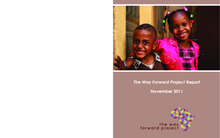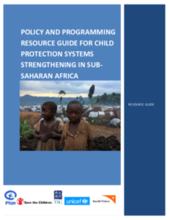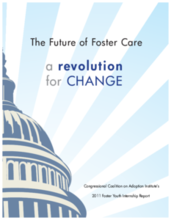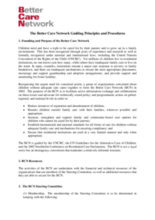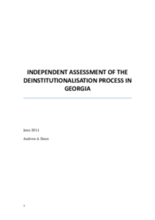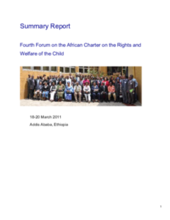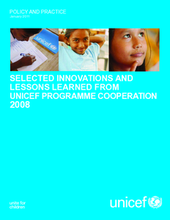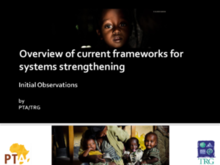Displaying 821 - 830 of 1028
The Congressional Coalition on Adoption Institute’s The Way Forward Project brought together a group of international experts to discuss opportunities and challenges facing governmental and non-governmental organization leaders in six African nations (Ethiopia, Ghana, Kenya, Malawi, Rwanda, and Uganda) as they work to develop systems of care that serve children in and through their families.
This Resource Guide aims to be a user-friendly and manageable document designed to provide an overview of the current system strengthening approaches, along with a series of resources and tools available to support systems strengthening in child protection.
In order to commemorate the two year anniversary of the resolution of the Alternative Care Guidelines, discuss the use and implementation of the Guidelines, and raise the profile of the importance of this international framework, the Permanent Mission of Brazil to the United Nations, in partnership with the Better Care Network, UNICEF, SOS and the NGO Committee on UNICEF Working Group on Children without Parental Care, held side-event during the UN Social, Humanitarian Cultural Affairs Committee of the UN General Assembly.
Released by a group of former United States foster youth as a comprehensive report on the system in which they were raised, this report details the Congressional Coalition on Adoption Institute’s (CCAI) Foster Youth Internship (FYI) recommendations on improving hot-button issues ranging from immigration, education, mentoring, psychotropic drugs, child abuse and government accountability
Press release from UNICEF and OHCHR launching a joint campaign to put an immediate end to the practice of placing young children into State-run infant homes.
Stipulates function, structure and guiding parameters for the interagency network.
This independent assessment examined, specifically, the deinstitutionalisation of children in special education boarding schools and child care institutions in the Republic of Georgia.
The following recommendations were made to the African Committee of Experts on the Rights and Welfare of the Child in relation to children without appropriate care.
Particularly relevant to alternative care issues is the highlighted section on the Bulgarian experience of integrating advocacy, fundraising and communication in order to influence the deinstitutionalization of children without parental care in Bulgaria.
This presentation provides an overview of approaches and frameworks utilized to strengthen child protection systems in Africa.

